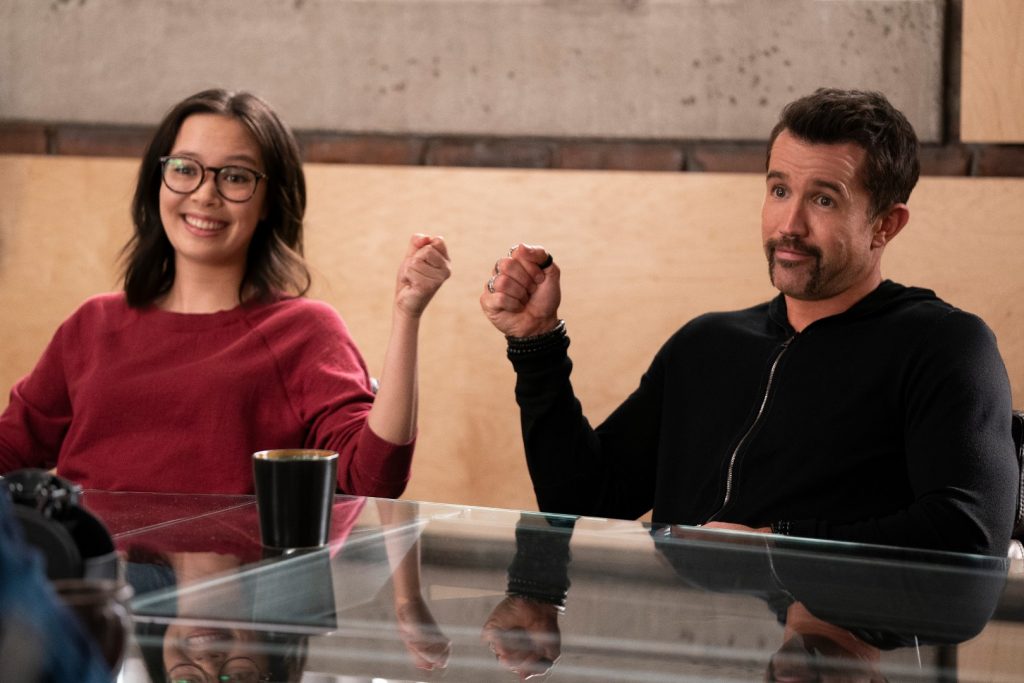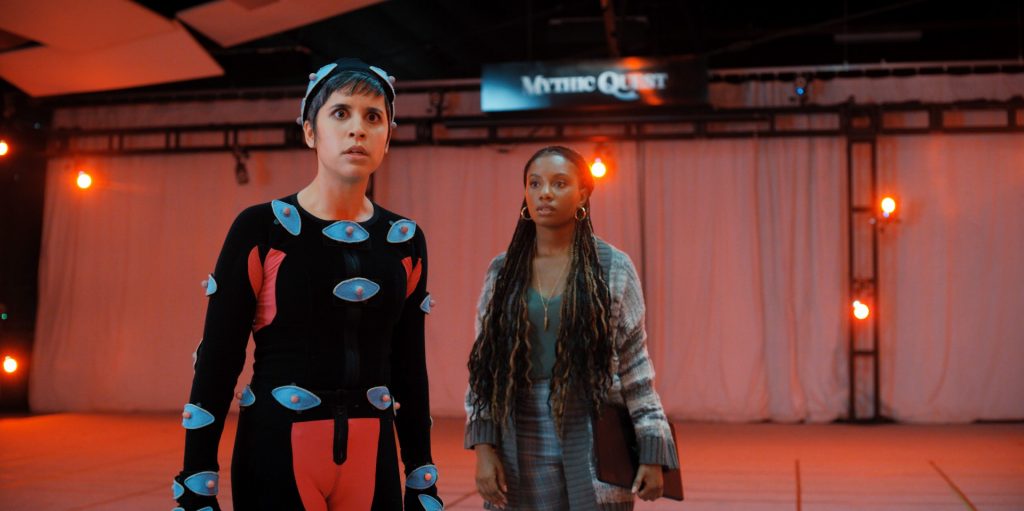Read also:
How to Watch FX Live Without CableHow To Watch AMC Without CableHow to Watch ABC Without CableHow to Watch Paramount Network Without CableThe Apple TV+ workplace sitcom may not be a gag a minute, but it’s got a better handle on its diverse cast of characters.
In a perfect world, every sitcom would have a first season that never sees the light of day. That’s because it usually takes a season for the actors to grow comfortable in their characters’ skins, and for the show’s writers to fine-tune the dynamics of the ensemble into something compelling. The new season of Apple TV+’s Mythic Quest is a perfect example of a show finding itself after taking ten episodes to figure things out.
Most shows try to expand outwards for second seasons, but this show, created by It’s Always Sunny alums Charlie Day, Megan Ganz, and Rob McElhenney, digs deeper instead of wider, to its benefit. The core ensemble returns, headlined by blowhard Alpha Male Ian (McElhenney) as the co-creative director of the titular online role-playing game. The show wisely makes his character step back from the spotlight, allowing the rest of the diverse cast to get their fair share of the workplace comedy pie.
Ian now shares creative director duties with the head coder from last season, Poppy (Charlotte Nicdao). Now they have to navigate their love-hate relationship as they create a highly anticipated expansion pack named Titans’ Rift.

But the more interesting aspect is how Poppy struggles to come into her own as a leader throughout the season. She has a tough time being in charge of the staff that makes up the company, including the art team who hilariously never get credit for their hard work. Her character has to learn the difference between truly inspiring people or just emotionally manipulating them. In cynical Sunny fashion, the show comes on the side of mixing the two.
In the second episode, Poppy gives a speech at the Women in Gaming conference. She wants no part in any public speaking, trashes the event and tries her hardest to get out of it, but Ian decides for her it’s important and pushes her to do it. He even writes her speech for her to make it easier. She flails in front of the microphone, crying and farting from crab cake hor d’oeuvres, before going off script.
She turns the speech into a brutally honest monologue about her shortcomings, but also what she has to offer as a woman in a male-dominated field. It turns out she meant to do the speech that way the whole time, resulting in maximum inspiration, but doing so in an emotionally manipulative way. It’s a thesis for the season, and also Nicdao’s finest moment of the series so far.
A perfect example of a show finding itself after taking ten episodes to figure things out.
The theme of growing into a strong leader leaks down into the rest of the ensemble, including the women who test for bugs in the games, Dana (Imani Hakim) and Rachel (Ashly Burch). They’re the MVPs for season two thanks to a work romance subplot that’s actually romantic and worth rooting for (the two actors have the best chemistry in the show), and the journeys both characters take.
In one of the best episodes, written by Keyonna Taylor, Rachel finds herself stuck with Ian as he tries to drive an expensive Porsche. Of course, he doesn’t know how to drive a stick shift and refuses to admit it, even as he unironically states, “I put the man in manual.”
After calmly listening to him give every possible excuse, she finally takes over and drives for him. During the ride, Ian mentions how he got where he is today, which is being a straight white guy who confidently told a boss in an elevator what he wanted to do. He then turns it around on Rachel, asking her what she wants in her career, pointing out that she’s literally in the driver’s seat at the moment and he has to listen to her.

The dazed expression on Rachel’s face is one of the most effective punchlines of the season. It’s the best example from this show (or really any recent show) about how toxic masculinity intersects with white privilege in the workplace, and how the old ways of who gets to move up in corporate ladders may (hopefully) be changing fast.
But for all the advances the show’s made with its characters and emotional depth, it still has the fatal flaw it had in its first season. For a show created by some of the funniest writers, featuring some of the funniest character actors (shout out to the great David Hornsby as David, the saddest CEO in the history of television), the show just isn’t very funny.
Sure, there are jokes, and they mostly work, but they are few and far between. The comedy mostly relies on the witty banter between characters, and the occasional jab at the modern gaming industry, including a subplot poking fun at the recent trend of game franchises making a “Battle Royale” version of their games just to get children to buy their product. It’s satire, but not biting or funny enough to land hard.
In its defense, not every sitcom has to be a laugh-a-minute chuckle fest with expertly constructed jokes on the level of Veep, and the show seems more focused on going for the heart than consistent laughs. It gets away with it because of the deep bench of great performances, and how it takes the workplace sitcom into new, diverse areas. I just wish it would buy a loot box that levels up its comedy stats.
Mythic Quest season 2 boots itself up on Apple TV+ May 7th.